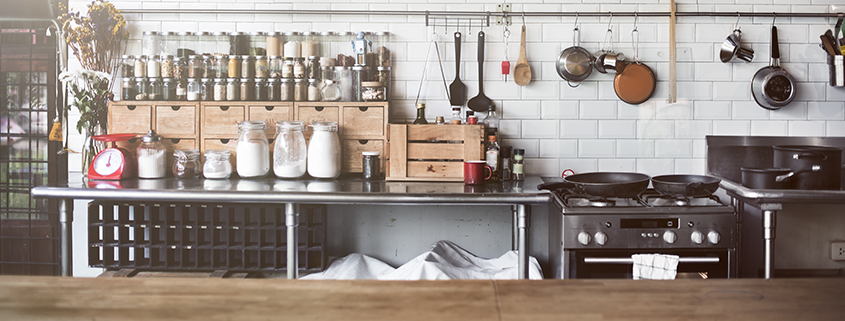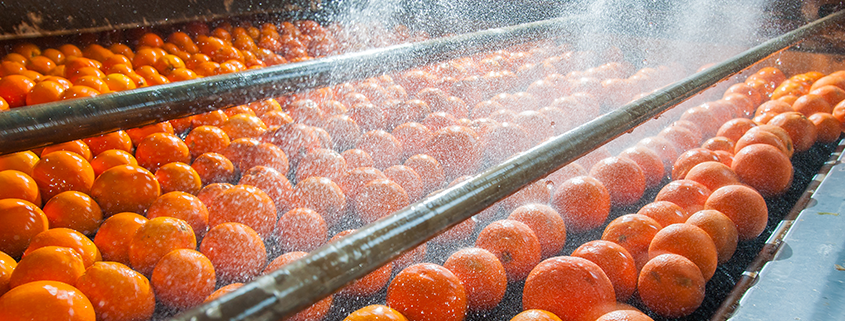In the food and beverage industry, no restaurant wants to go through experiences that tarnish the brand image. As a restaurateur, one of the worst nightmares for you can be a food quality recall. You may be forced to recall a food product that causes harm or pose a threat to public health. It might also be because the food items do not meet the required standards prescribed by the regulatory authorities.

In a Harris interactive poll, consumers indicated that 55% would switch brands temporarily following a recall and 15% said they would never purchase the recalled product. However, there are several ways to manage and prevent a food quality recall.
Managing a Food Quality Recall
In case a food quality recall happens in your restaurant, how do you deal with it? The below methods can be adopted in managing a food quality recall.
1. Communicate to All your Outlets
As soon as you identify the issue, the first step is to communicate about the food recall immediately to all the restaurants spread across multiple locations. You can mention details such as the lot code of the food item that caused the issue, the vendor who supplied the item, and the severity of the issue. A strict instruction should go to all the outlets that stop them from further usage of the item in cooking.
2. Speak to the Vendors and Get the Issue Resolved
Once you have identified the issue, destroy all the items that caused the food quality recall. The details of the item such as the date of purchase, item code, etc. should be collected and a complaint needs to be raised to the vendor. Get a replacement for those items from the vendor and ensure that such a nasty incident does not recur in the future.
Also Read: How to Elevate Food Cost Control with a Vendor Management System
3. Sanitize the Kitchen

Since your restaurant is affected by a food recall, sanitizing the kitchen is of primary importance. Your staff should be well educated on the protocol to be followed while performing the sanitization. However, sanitization is a part of the standard operating procedure of any restaurant and it needs to be performed regularly. Especially in these pandemic times, dine-in customers are quite concerned about the hygiene factor during the restaurant visit. Hence, you can extend the sanitization process to the entire restaurant instead of limiting it to the kitchen. The staff performing the sanitization should use all the safety measures as they are at the risk of getting infected.
4. Keep the Media and Customers Informed
Proper communication should go out to inform the media and customers about the corrective steps you have adopted to fix the issue. The preventive measures followed to avoid the recurrence of such unfortunate incidents should also be part of the communication. Such measures help to regain the lost reputation for your brand. The staff may also be trained on how to communicate properly on this matter to the customers. Managing a food quality recall depends to a great extent on the efforts you put in to reduce the damage control.
Methods of Preventing a Food Quality Recall
We already discussed the various methods of managing a food quality recall. Now let’s go through the 3 methods of how a food quality recall can be avoided in the future:
1. Check your Inventory at Regular Intervals
One of the important reasons for food contamination is the presence of microbes in the stock. During the cooking or storing process, there are possibilities of microbe infection. To avoid these issues, have stringent quality checks to inspect the quality of items in inventory at regular intervals. Checking the label, date of packaging, and expiry date frequently can avoid food recall to a large extent.
This is one of the important ways to manage and prevent a food quality recall. Streamlining inventory management is pretty easy with digital restaurant management platforms such as inresto SCM. You can track the inventory in real-time with such systems.
2. Right Storage of Inventory and Exercising Cleanliness

You must make sure that the food materials are stored in the right places at the right temperature. In the case of perishable food items such as meat and fish, it needs to be stored in the freezer. Keeping them in the wrong places can lead to contamination and microbial infection. The advantage of keeping track of the expiry dates is that you can prioritize the order in which the items need to be used in the kitchen. Those food materials which are nearing the expiry date should be used immediately and the rest of the items can be kept aside for later use. The staff should be instructed to wash and sanitize cutting boards, plates, knives, and forks. Washing their hands with soap and hot water during the sanitization process should also be strictly followed.
Also Read: How to reduce food waste at your restaurant.
3. Discard the Expired Items
In many cases, the items in your stock expire. Your staff members should be given strict instructions that they shouldn’t use the expired food materials under any circumstances. Nobody wants to take a chance that may lead to food quality recall later. In case of isolating or disposing of expired products, the guidelines issued by the vendors should be kept in mind. That’s because you will be eligible for product reimbursement only if you follow the measures recommended by the vendor. Also, be well informed on the various food standards prescribed by the respective authority in your region.
Parting Words
As discussed, there are several ways to manage and prevent a food quality recall. However, it’s recommended to exercise due care and follow all the hygiene protocols so you can avoid the pain of dealing with a recall. Dealing with recalls is critical because once your brand image is tarnished, it will take a long time to pull customers back to the restaurant. In these competitive times, restaurants are doing everything to grab a share of the market pie, and you cannot afford to lag.

